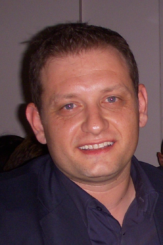Microeconomics II

Learning Outcomes
Microeconomics constitutes one of the two basic pillar of Economics (the other being Macroeconomics) and thus it is a core course in any undergraduate program of Economics. Microeconomics provides the theoretical foundation of the economic behavior of economic units, i.e., consumers, business firms, and resource owners. Microeconomics is taught in two semesters as Microeconomics I and II. After the successful completion of Microeconomics II students will be able to:
- Analyze and present in a professional and scientific way, to specialized and non- specialized audiences, the various market structures and their economic effects on equilibrium prices and quantities in the short run and long run.
- Analyze the business strategies undertaken by firms when there is interdependence among them.
- Analyze and present in a scientific way the markets for factors of production and apply comparative static analysis.
- Demonstrate knowledge and understanding of the issues concerning efficiency, general equilibrium and general welfare.
- Analyze the effects of government intervention in the case of public goods and externalities and explain why governmental intervention improves general welfare.
- Apply microeconomic theory and microeconomic models to real economic situations and explain, analyze and predict the effects of interventions and structural changes in the economy on the welfare of individuals.
Course Contents
Pure monopoly theory: short-run and long-run equilibrium, comparison with perfect competition, price differentiation. The theory of monopolistic competition: product differentiation, short -run and long-run equilibrium, advertising. Oligopoly theory: background, the Cournot and Bertrand models, Stackelberg model, model of dominant firm, the Sweezy model, cartels. Introduction to Game theory. Price and employment of inputs under perfect competition. Price and employment of inputs under imperfect competition. General equilibrium and resource allocation. Edgeworth box, exchange and production. The product transformation curve, the marginal rate of transformation. Welfare economics and political economy. Marginal conditions for optimal resource allocation, the production possibility curve and the social welfare function, perfect competition and economic efficiency. Public goods, externalities. The optimal quantity of a public good, the provision of a public good, the case of environmental pollution, property rights and the Coase theorem, state intervention. Moral hazard , asymmetric information, auctions.
Teaching Activities
Lectures (4 hours/week) and Tutorials (2 hours/week)
Teaching Organization
|
Activity |
Semester workload |
| Lectures (4 hours per week x 13 weeks) |
(4X13) 52 hours |
| tutorials (2 hours per week x 13 weeks) |
(2X13) 26 hours |
| Hours for private study of the student |
122 hours |
| Total number of hours for the Course (25 hours of work-load per ECTS credit) |
200 hours (total student work-load) |
Assessment
The overall course grade is the sum of
a) the final exam grade plus
b) 20 percent of an optional mid-term exam grade
Both, the mid-term exams and the final are multiple- choice exams (40 questions with 5 alternative answers). All the information regarding course material, student assessment, laboratory exercises are included in the course outline, which is distributed to all students in the first day of classes. This material is also included in course webpage and it’s always available to the students during their studies.
Use of ICT
In e-class material, in tutorials, when necessary and in student’s communication



